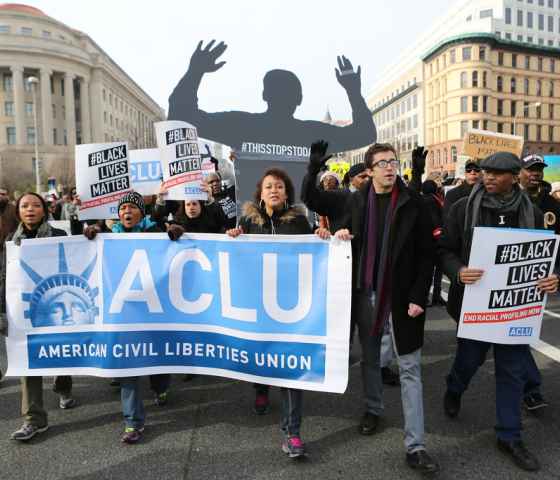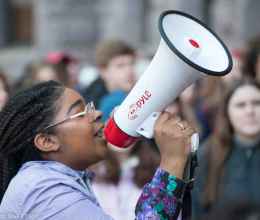By Jennifer Riley Collins, Executive Director
Published in the Clarion Ledger
Pearl High School, Columbine, Sandy Hook, Marjory Stoneman Douglas High School, these are just a fraction of the horrific incidents labeled as “school shootings.” Following each horrific incident, government officials, celebrities and communities mourn and offer up thoughts and prayers. Each time the nation enters into a fiery debate about gun control, and then the issues quietly fade into a distant memory only to be revived again the next time. Local governments often pass knee-jerk reactionary ordinances and legislation. These placating policies are often not thoroughly thought out nor are they truly responsive to the issues of gun control or the need for increased mental health care. In addition, these policies increase the likelihood that certain children will be pushed into the prison pipeline. Mississippi has done just that.
I ask, however, that we take the time to listen to the voices of those most impacted by these tragic events — our children — and explore how diminishing access to equitable opportunities may be a contributor to children feeling like they have no other way out.
The students at Marjory Stoneman Douglas High School have declared: “Never again!” They have rallied support across the country and have demonstrated to other students that their voice matters. Instead of engaging our youth and honoring student activism, districts have reacted by suggesting that students, who wish to show solidarity and advocate for their own issues, will be dealt with punitively.
Mississippi Legislators response: Arm teachers.
Our teachers are already stressed to teach, and our students are struggling to learn in resource-deficit educational environments. And now, we are passing laws that add an additional burden — be on “the ready.”
Soldiers in a combat zone are asked to be on “the ready.” They are trained for years to distinguish between combatants and non-combatants. We are now asking out educators to operate as if our schools are war zones. Soldiers returning from war are given a time of decompression and offered reintegration resources. Asking teachers to operate as if they are soldiers or law enforcement day after day is unreasonable, unsafe and a dangerous oversimplification of a greater problem.
Those most vulnerable to this heightened posture are the very children we are supposed to prepare for the future, particularly youth of color who are disproportionately dealt with in much harsher and penalizing manners. The potential scenarios likely to result from an untrained overstretched teacher wielding a gun against a student is frightening, especially if that teacher and student are of different races.
Data has already shown that adding more school resource officers (SROs) without defining their role will increase arrests. SROs are too often involved in routine discipline, resulting in increased youth interaction with the criminal justice system. Reacting to this tragedy by doubling down on the school-to-prison pipeline is counterproductive.
Mississippi’s leadership reacted quickly to say they did something and avoid the needed discussion of gun control with House Bill 1083, but quick does not mean decisive or effective. The Constitution does not prevent lawmakers from adopting measures to restrain gun violence.
Justice Antonin Scalia, writing for the Supreme Court in its new, expansive interpretation of the Second Amendment, recognized that, “the Second Amendment right is not unlimited.” He added, “It is not a right to keep and carry any weapon whatsoever in any manner whatsoever and for whatever purpose.” Justice Scalia acknowledged that lawmakers may regulate concealed weapons, prohibit possession of firearms by felons, forbid firearms in sensitive places such as schools and government buildings, and impose conditions on their sale.
Lawmakers can require universal background checks, close loopholes in how guns are purchased, limit ammunition capacity, ban dangerous modifications, and ban dangerous and unusual weapons. None of these restrictions would violate the Constitution. We can invest in community mental health services, add more school counselors, and expand programs to help our youth develop the skills to navigate crises.
What we cannot do is ask our students to bear more of the burden of gun violence.
It’s time to listen to these students and to stop misusing the Constitution to shut down the debate about how to end gun violence.
Picture Source: NEA

